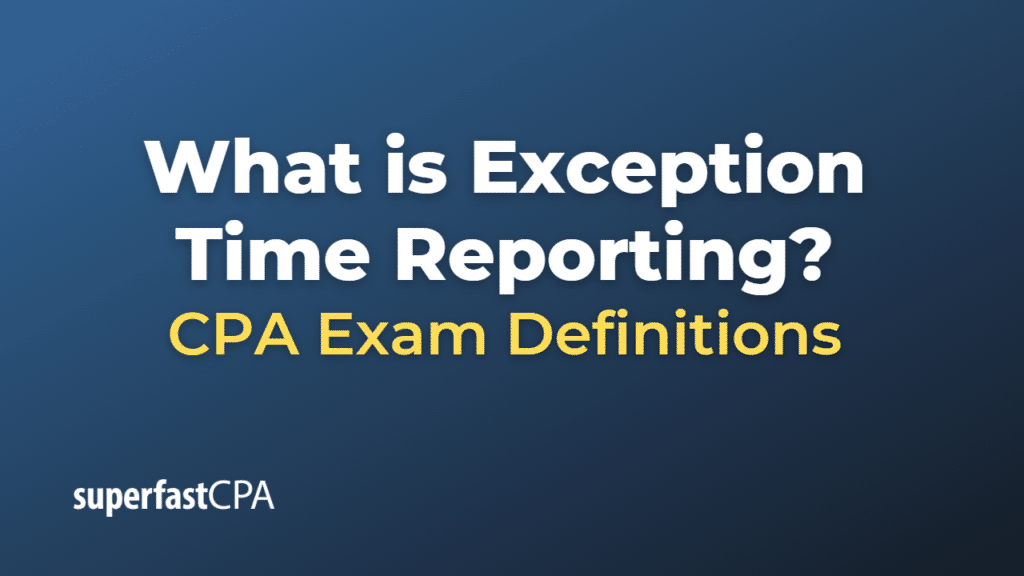Exception Time Reporting
Exception time reporting is a time tracking method where employees only report deviations from their regular work schedule. This contrasts with positive time reporting where employees must account for all of their time, usually in a time sheet, detailing their start time, end time, and any breaks taken.
In the case of exception time reporting, if an employee is scheduled to work from 9:00 AM to 5:00 PM, Monday to Friday, they wouldn’t need to report anything if they worked according to this schedule. However, if they worked overtime, took a day off, arrived late, left early, or took a longer lunch break than usual, these deviations would be reported.
The main advantage of exception time reporting is its efficiency. Employees and managers save time because they don’t need to record or review daily time records for employees who work their regular schedule. This method is often used in salaried positions where pay is not determined by the number of hours worked but can also be used in hourly positions for tracking purposes.
However, a potential drawback is that it may be less precise than positive time reporting. If employees and managers are not diligent about recording deviations, the company may not have an accurate picture of how much time employees are actually working. Therefore, it’s crucial to have clear policies and strong communication about what constitutes an exception and how it should be reported.
Example of Exception Time Reporting
Let’s consider an example with a software company that utilizes exception time reporting.
Let’s say there’s a software engineer named John who works at the company. His regular work schedule is Monday to Friday, from 9:00 AM to 5:00 PM. According to the company’s exception time reporting policy, John does not need to submit a timesheet if he works according to this schedule.
However, during a particular week:
- On Tuesday, John worked two hours of overtime to meet a project deadline.
- On Thursday, John took a half-day off for a personal matter.
In this case, John would report these exceptions in the company’s time tracking system:
- Tuesday: 2 hours overtime
- Thursday: 4 hours (half-day) absence
This report would allow the company to adjust John’s pay for the overtime hours (if company policy provides overtime pay) and to record the time off.
Exception time reporting can save time for employees and management, as daily timesheets are not required if there are no deviations. However, it relies on John’s diligence in accurately reporting any exceptions to his regular work schedule. Any inaccuracies could impact the company’s payroll and record keeping.












